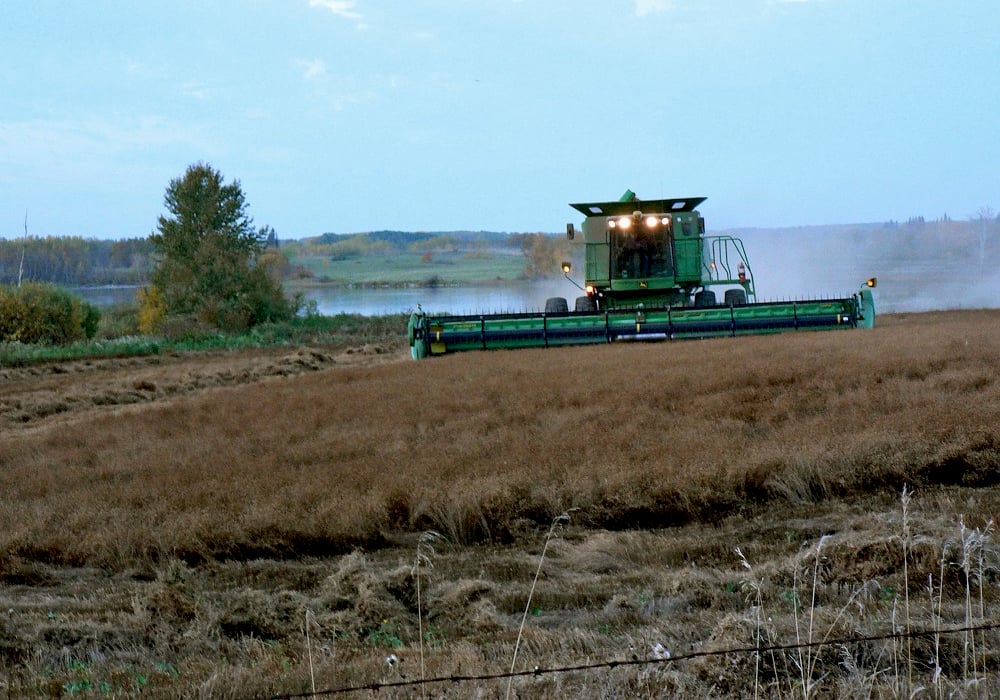A nursery-finisher barn in southeastern Manitoba that was thought to be the province’s fifth case of porcine epidemic diarrhea has tested free of the virus.
The office of the province’s chief veterinarian said Oct. 9 that subsequent sampling of the suspected case, which was initially confirmed Sept. 30, proved there was no infection.
However, the chief veterinarian continues to investigate.
Manitoba Pork chair Karl Kynoch said in a statement that pigs, manure and the environment of the site were tested, and repeated visits to the unnamed farm resulted in no clinical signs of PED infection.
Read Also

Most of Manitoba harvest wraps up for 2025
Manitoba Agriculture issued its final crop report of 2025, showing the overall provincewide harvest at 97 per cent complete as of Oct. 20. Nearly all major crops have finished combining, with 37 per cent of Manitoba’s sunflowers finished, plus 71 per cent of grain corn and small amounts of soybeans and potatoes left to do.
“It was also noted that this site had good biosecurity practices and was not directly linked to any positive farm,” said Kynoch.
“The PEDv source of the positive test from the site is unknown.”
PED is almost always fatal to young piglets and also affects the health of older animals. As the name indicates, it is characterized by acute watery diarrhea that results in death from dehydration and malnutrition.
PED does not affect people or the safety of pork.
Sixty-three farms have been affected in Ontario, four in Manitoba and one each in Quebec and Prince Edward Island.
Effects of the virus have been more severe in the United States, where it has been found in 31 states and has killed millions of piglets. Iowa, North Carolina and Minnesota have the highest number of cases.
PED spreads easily in manure and can also travel on clothing, equipment, transport trucks and multiple other vectors. Strict biosecurity is considered the only method of protecting farms from infection.















